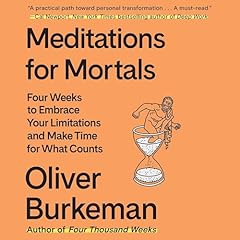
Hope for Cynics
The Surprising Science of Human Goodness
No se pudo agregar al carrito
Solo puedes tener X títulos en el carrito para realizar el pago.
Add to Cart failed.
Por favor prueba de nuevo más tarde
Error al Agregar a Lista de Deseos.
Por favor prueba de nuevo más tarde
Error al eliminar de la lista de deseos.
Por favor prueba de nuevo más tarde
Error al añadir a tu biblioteca
Por favor intenta de nuevo
Error al seguir el podcast
Intenta nuevamente
Error al dejar de seguir el podcast
Intenta nuevamente
 Exclusivo para miembros Prime: ¿Nuevo en Audible? Obtén 2 audiolibros gratis con tu prueba.
Exclusivo para miembros Prime: ¿Nuevo en Audible? Obtén 2 audiolibros gratis con tu prueba.
Elige 1 audiolibro al mes de nuestra inigualable colección.
Acceso ilimitado a nuestro catálogo de más de 150,000 audiolibros y podcasts.
Accede a ofertas y descuentos exclusivos.
Premium Plus se renueva automáticamente por $14.95 al mes después de 30 días. Cancela en cualquier momento.
Compra ahora por $22.49
-
Narrado por:
-
Jamil Zaki
-
De:
-
Jamil Zaki
"A ray of light for dark days” —Adam Grant, #1 New York Times bestselling author
In 1972, half of Americans agreed that most people can be trusted; by 2018, only a third did. Different generations, genders, religions, and political parties all think human virtue is evaporating. Cynicism is an understandable response to a world full of injustice and inequality. But in many cases, it is misplaced. Dozens of studies find that people fail to realize how kind, generous, and open-minded others really are.
Cynical thinking deepens social problems: when we expect the worst in people, we often bring it out of them. We don’t have to remain stuck in this cynicism trap. Through science and storytelling, Jamil Zaki imparts the secret for beating back cynicism: hopeful skepticism—thinking critically about people and our problems, while honoring and encouraging our strengths.
Far from being naïve, hopeful skepticism is a precise way of understanding others that can rebalance our view of human nature and help us build the world we truly want.
Amazon Editors' Pick for Best Nonfiction Books of 2024
Los oyentes también disfrutaron:




















Reseñas de la Crítica
“I can’t imagine a more timely topic. Hope is a skill, and one of my favorite psychologists has written its playbook. Hope for Cynics is grounded in fascinating research yet deeply personal, with an outstanding practical appendix of ‘try this’ tips for escaping the snare of cynicism.”
—Angela Duckworth, author of the New York Times bestseller Grit: The Power of Passion and Perseverance
—Angela Duckworth, author of the New York Times bestseller Grit: The Power of Passion and Perseverance
“If you think hope is naïve and cynicism is wise, get ready to think again. Jamil Zaki is at the forefront of the science of beliefs, and he shows that refusing to see possibility makes it impossible to solve problems. This book is a ray of light for dark days.”
—Adam Grant, #1 New York Times bestselling author of Hidden Potential and Think Again, and host of the podcast Re:Thinking
“There has always been an emotional case for hope, but now there is a rational one. Jamil Zaki’s new book is beautiful, wise, and important—a sensible, scientific, and much-needed tonic for what ails us.”
—Daniel Gilbert, author of the New York Times best-seller Stumbling on Happiness
—Daniel Gilbert, author of the New York Times best-seller Stumbling on Happiness
"Magnificently written and powerfully moving, Hope for Cynics is *the* societal medicine we all need right now. Filled with the latest science, practical tips, and moving stories, Zaki provides an inspiring example of how each and every one of us can turn towards more optimism, connection, and joy."—Laurie Santos, Chandrika and Ranjan Tandon Professor of Psychology and host of The Happiness Lab podcast
"In these troubled times, we hope against hope for reasons to be hopeful. And along comes Hope for Cynics, with good news not just about the future, but the present as well. Data, when viewed critically, show that we are less polarized, unempathic, and angry than we’re led to believe. There’s little to fear except snarky cynicism itself, and Zaki provides needed antidotes to it. Written with a wise personal voice, this is a vital book for all of us."—Robert Sapolsky, New York Times bestselling author of Determined and Behave
“In this transformative book, Jamil Zaki presents an antidote to the cynicism corroding our social health. With rigorous scientific research and fascinating narratives, Zaki challenges the belief that humanity is inherent selfish, and advocates, instead, for a 'hopeful skepticism’ that creates a better world. This is a practical guide to nurturing a more trusting and cooperative society—and, ultimately, a more optimistic future.”
—Charles Duhigg, author of bestsellers Supercommunicators and The Power of Habit
—Charles Duhigg, author of bestsellers Supercommunicators and The Power of Habit
Las personas que vieron esto también vieron:


















He teaches you how we can all use the science cited to create change in our own lives & social change in the world to make our society & life less cynical & more hopeful.
tim #bgreen🌏
Loved it. If you hope for more hope in the world, or in your life, listen to this book.
Se ha producido un error. Vuelve a intentarlo dentro de unos minutos.
Cynicism is foolish and destructive
Se ha producido un error. Vuelve a intentarlo dentro de unos minutos.
Important in all times & especially ours
Se ha producido un error. Vuelve a intentarlo dentro de unos minutos.
Encouraging and brilliant.
Se ha producido un error. Vuelve a intentarlo dentro de unos minutos.
Urgent challenge with soul nourishment
Se ha producido un error. Vuelve a intentarlo dentro de unos minutos.


